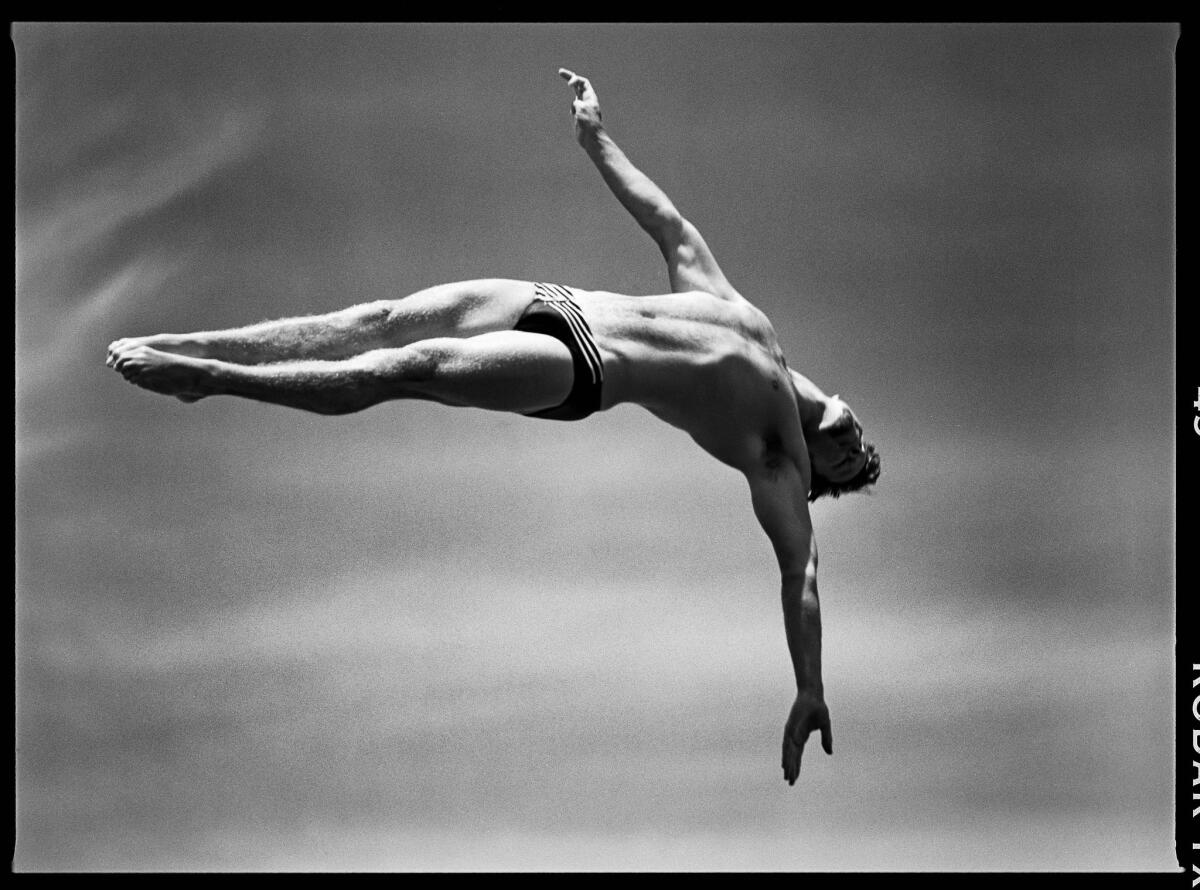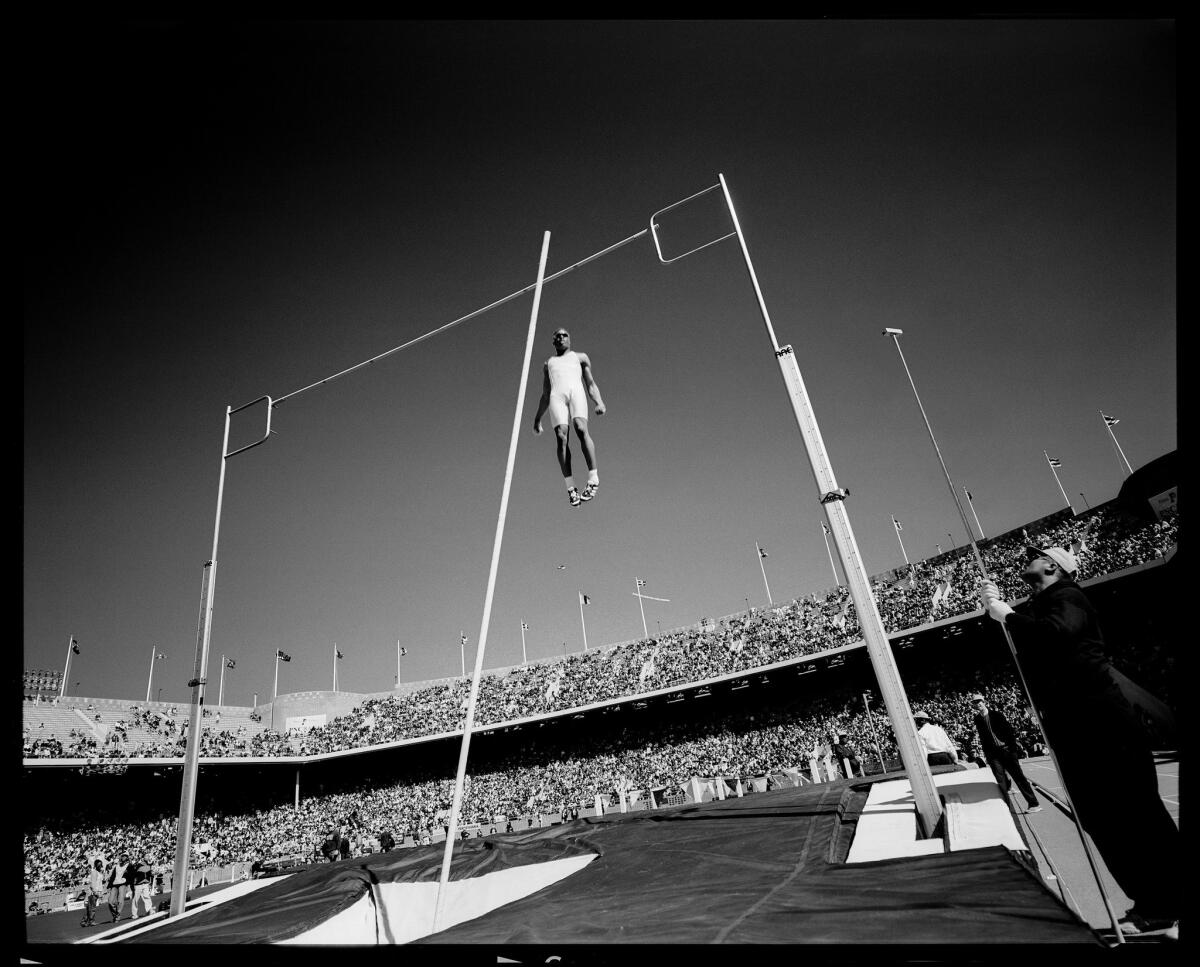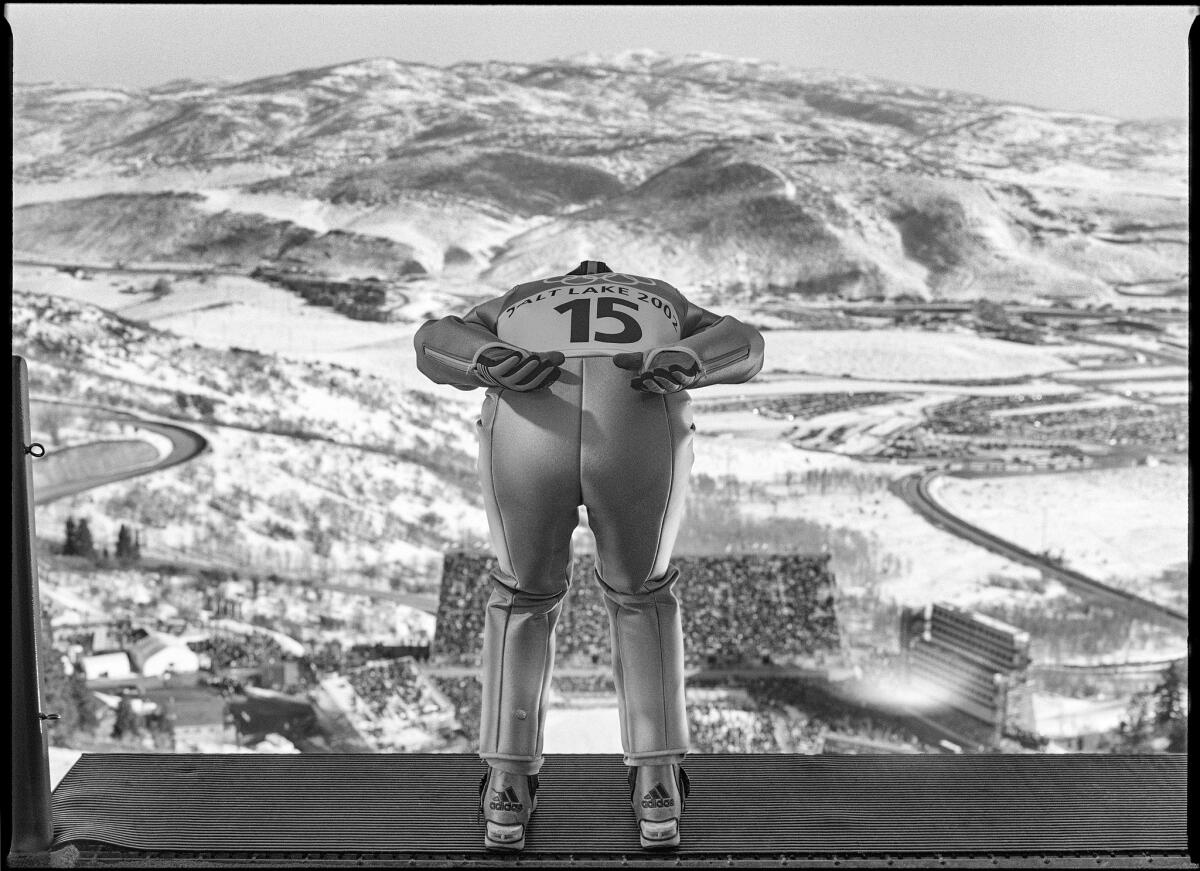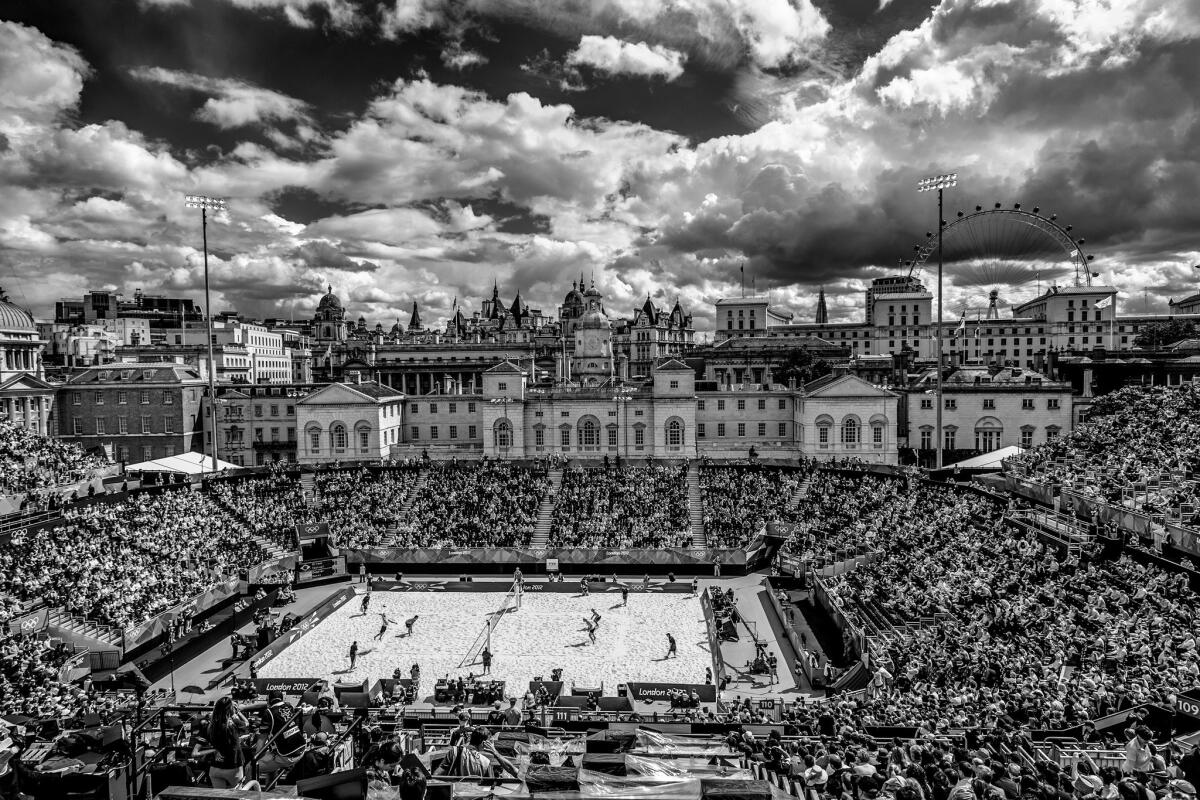David Burnett’s Olympics photography: The poetry of sport, written in pictures
Photographer David Burnett was fed up. During the Los Angeles Olympics in 1984, he had been shooting track events from the finish line for a week. He needed a new angle — and a respite from the hordes of other cameras, tripods, remote wires and 400-millimeter lenses.
Burnett found a nice space on a bench in an unconventional spot along the track for the highly anticipated 3,000-meter showdown between American Mary Decker and barefoot Zola Budd running for Britain. In the fifth lap, as Budd passed, Decker tripped and fell to the ground — smack dab in front of Burnett. That indelible moment, the devastation on Decker’s face expressing the agony of defeat, made Burnett’s career.
------------
For the Record
Aug. 9, 3:20 p.m.: This article says the “David Burnett: Man Without Gravity” exhibition will close Sept. 24. It will close Sept. 25.
------------
Thirty-five other Olympic images form the show “David Burnett: Man Without Gravity,” running through Sept. 24 at Anastasia Photo in New York City. The show focuses on the man who launched his 50-year career by covering the Vietnam War. He eventually traveled to 75 countries, capturing the images of presidents, the Iranian Revolution, the Winter Olympics in Salt Lake City and Sochi, Russia, and every Summer Games since 1984.
See the most-read stories in Entertainment this hour »
“I’m always trying to bring a sense of what it’d be like to be a spectator in the stands,” Burnett said recently by phone as he waited to board a plane to this year’s games in Rio de Janeiro.
One of the photographer’s favorite examples: a black-and-white panorama of the 100-meter finals at the 2012 London Games. Burnett shot from high up, using a 1940s speed graphic press camera with a 1943 Kodak reconnaissance airplane lens to capture the scene.
“It doesn’t necessarily have to be that gold-medal-winning moment,” Burnett said, citing Swiss runner Gabriela Andersen-Schiess, who staggered across the finish line of the women’s marathon in 1984. “An athlete could fail miserably but have great heart.”




Follow The Times’ arts team @culturemonster.
The biggest entertainment stories
Get our big stories about Hollywood, film, television, music, arts, culture and more right in your inbox as soon as they publish.
You may occasionally receive promotional content from the Los Angeles Times.







